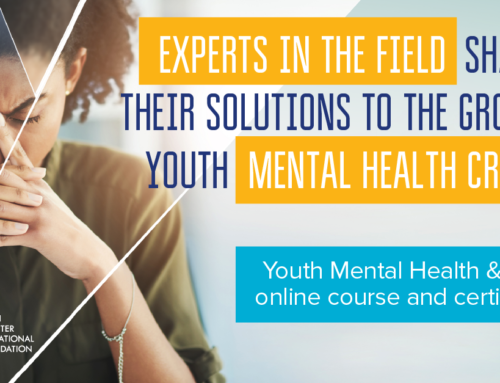
In the spring of 2020, Harvard law professor Elizabeth Bartholet published a scathing paper describing what she labeled as the “rapidly growing homeschool phenomenon and the threat it poses to children and society.”
Among her list of complaints, Dr. Bartholet announced that less than a dozen states regulate homeschool parents’ qualifications to educate their children. “This means, effectively, that people can homeschool who’ve never gone to school themselves, who don’t read or write themselves.”
As if homeschool parents needed any more fear-mongering laid on their shoulders.
Unfortunately, these flamboyant assertions are not surprising. Many parents who consider teaching at home—or are already actively homeschooling—battle doubts about their abilities and qualifications. (Read more here about what to do if you feel uncertain about homeschooling.)
Sensational hyperbole aside, let’s look at the truth. Factual and logical evidence agrees that parents are the best qualified to oversee their children’s education—with or without Dr. Bartholet’s approval.
1. Parents Care
First, parents generally care about their children’s education…and we aren’t just talking about academics. Even a nominally-involved parent wants to make sure their child is learning.
As a concerned and attentive parent, you desire the best possible environment for your child’s education. You will work toward providing resources that are tailored to their strengths and weaknesses. You also have the freedom to select materials that reflect your worldview and standard of success.
Parents have a vested interest that no one else can compete with, along with insight into their child’s unique personhood.
“What’s the most accurate predictor of academic achievement?” asks the Waterford Center for Education. “It’s not socioeconomic status, nor how prestigious the school is that a child attends. The best predictor of student success is the extent to which families encourage learning at home and involve themselves in their child’s education.”
It would be difficult to find anyone more capable of saturating a child with a love of learning than a parent in the environment of their home. You, as the parent, are uniquely qualified with exclusive insight into your child’s needs and interests.
2. The Numbers Don’t Lie
Good intentions aren’t everything, right? Whether you’re a parent considering homeschooling or a veteran in the trenches, you may be doubting your ability to give your children a well-rounded and academically-sound education.
According to the statistics, you have nothing to fear.
The National Home Education Research Institute tells us that homeschool students typically score 15 to 30 points above public school students on standardized academic achievement tests. What’s more, homeschooled students test higher regardless of their parents’ level of formal education or their family’s household income.
If that is not comforting enough, research further shows that the degree of state control and regulation of homeschooling is not connected to academic achievement.
Breathing a little easier yet?
Maybe these achievement scores hold little weight with you. Many choose to home educate because their own “traditional” education inadequately prepared them for adulthood. The limited research conducted so far has shown no negative effects on homeschool students in the workplace, including the military. Contrary to urban myth, homeschool students score higher than their public-schooled peers in social aptitude tests.
Government-qualified teachers are trained and certified for a unique environment. Parents teaching at home don’t have to oversee an industrial complex of hundreds of students with a myriad of unique social, educational, and physical needs.
This means that a homeschooling parent can devote more attention to the individual student and maintain consistent oversight of progress throughout their child’s school years. This freedom provides a distinct advantage—an advantage that has been statistically shown to promote thriving in students.
3. You Are Not Alone
While entering the homeschool arena may feel daunting, you’re not alone.
This education choice is rapidly growing in popularity and diversity. Since the resurgence of homeschooling in the 1980s, some families are in their third generation of educating at home! With such normalization comes access to countless means of support and teaching aids.
A good place to start is building a foundation of support. Reach out to fellow homeschoolers in your area. Create the community and encouragement you need to bolster your confidence.
You also need to research your local homeschool laws and requirements. Often, these are very simple and easy to complete. Discussing your state’s requirements with veteran homeschool parents can also provide useful insight.
Homeschool curriculum has come a long way in the last few decades. Rainbow Resources is a helpful tool to begin your search for basic necessities and information on different curriculum companies.
In this advanced technological age, there is no shortage of blogs, YouTube channels, and Facebook pages devoted to various aspects of homeschooling. You can find a helpful article on starting this journey on the blog The Unlikely Homeschool, authored by Jamie Erickson, former public school teacher and homeschool mom of five.
With these resources, parents can educate themselves in preparation for the skills they want to impart to their children. Fostering the habit of learning begins with us! We have the freedom to explore and enjoy the education process right alongside our kids.
You’re the Best One for the Job
The beauty of teaching your child at home is that you are educating your child. Enjoy the freedom. Look at and listen to your child. Discern their needs, their interests, their strengths, and their weaknesses.
You get to decide what math curriculum flows at their pace, you kick the boring book to the curb, you choose to camp out in paleontology a little longer.
You choose where to take responsibility or delegate those responsibilities. You decide whether this path is the best for your family, for this season. There may be a time when an English tutor is needed or distance learning is best for that biology credit.
Relish crafting your kids’ education paths, like a sculptor enjoys molding clay.
Silence the fears. Don’t have a higher education? Lacking experience with kids? Struggling to have the right attitude? No problem. You are just as capable of learning as your child is.
Sure, there will be difficult, messy, and discouraging days—days when you feel anything but capable or successful. Students will struggle and sometimes fail, just like we do as parents.
Some kids are more comfortable with academics than others, but that’s the case wherever they go to school. Your homeschool journey might not be Pinterest worthy or academically brilliant, but you are providing the best by providing yourself.
At the end of the day, you are abundantly capable of crafting an education where your child can flourish and thrive. And you don’t need a teaching degree to succeed.
Noah Webster Educational Foundation’s goal is to bring positive change to America’s schools through grassroots leadership training and improved education legislation.
Want to help us? You have the power to make a difference in your child’s education, wherever they go to school. Follow us on Facebook to access our latest articles, news headlines, and resources!





[…] decided that homeschooling was the best choice to meet his specific needs. As a school choice, homeschooling is a wonderful, inclusive, loving environment that encourages many special needs children to thrive […]
[…] bottom line is that, at least in healthy circumstances, no one loves a child as a parent does, and no one knows that child as well as the parent does. They understand their offspring’s […]
[…] you don’t need experience or a degree to homeschool. All you need is a reason. You love your child, you value excellence, and you want to take […]
[…] incorporating reading into your homeschool daunts you, start small. Read picture books. Break read-aloud time into bite-sized pieces. Fifteen minutes is […]
[…] of olden times! One or both of a child’s parents hand-pick his/her curriculum, fund it, and teach him/her themselves. There are many variations on this method, but in America, this is what […]
[…] incorporating reading into your homeschool daunts you, start small. Read picture books. Break read-aloud time into bite-sized pieces. Fifteen minutes is […]